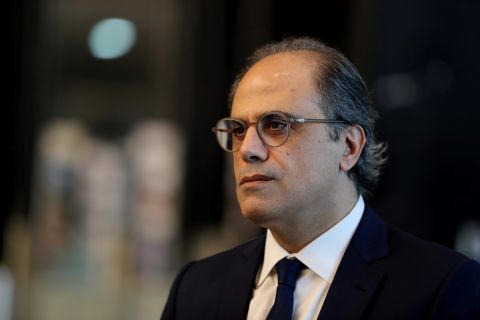Albawaba
RABAT
A plan to integrate women into Morocco's social and economic life and drag the country into the 21st century has ground to a halt because hard-line clergymen see it as "a blatant violation of Islam."
The plan, devised in collaboration with the World Bank and local non-governmental organizations, proposes revisions to the Personal Status Code - an Islam-inspired legal arsenal that defines the position of women - as a pre-requisite to promote their economic, political and social conditions.
A recent study by the Moroccan Population Department revealed deep inequalities between men and women in Morocco - 70 percent of women are illiterate against 30 percent of men. Women's access to economic activity is still very limited, female professional activity is a low 13 percent. Unemployment among women is around 25 percent, for men it is 19 percent. The same study said there is a growing number of women heads of household, but they are still illiterate and poor, whether they live in urban or in rural areas. Generally, because of their low educational level, women work in unskilled labor and especially in handicrafts. In the rural areas they work in agriculture as "unpaid family workers."
The Moroccan department in charge of social protection and family affairs, which pushes the plan, said Morocco ranks 126th among the nations of the world in the United Nations ranks of human development, mainly because of the deplorable situation of women.
The plan provides for a package of 200 measures to give women priority in education, the struggle against illiteracy and poverty, and punishment of sexual abuse.
The plan seeks to give women a greater say in political organizations through requiring each political body to allocate 30 percent of its seats to women. In the present Moroccan parliament, women hold two of the 350 seats.
"It would be impossible to promote women's status and condition if they are not given a stronger position in the decision-making bodies," said Mr. Saaoudi Al-Hadi, member of the Istiqlal (independence) party, which participates in the government.
While the social and economic development aspects of the plan seem to have the support of all sectors of civil society, the amendments it proposes to the Personal Status Code, has angered religious scholars.
The scholars insist that revising the legal code is their exclusive prerogative. "Neither the government, nor the NGOs, are entitled to revise religious texts. Scholars are the sole authority entitled to do so," said Mr. Mohamed Sharaf, a member of the Islamist party Al-Adl Wa Attanmya (Justice and Development), which has 10 seats in the House of Representatives.
The plan proposes to abolish polygamy, give women total independence to contract marriage and entrust divorce-related decisions to courts.
In case of divorce, it entitles women to have 50 percent of the household's wealth amassed during the marriage.
Under the present Personal Status Code, inspired from the Quran, Islam's holy book, man is entitled to take four wives, and women are not allowed to get married without the consent of a legal guardian (father or elder of the family). A husband can divorce whenever he likes and pay only petty compensation paid to the wife.
Mohamed Sardi, a member of Alternatives Association, said the proposed amendments are a fundamental condition for the success of the plan as a whole. "No development is possible without women's emancipation, which must begin with amending the outdated personal status code," he said.
Religious scholars say the plan is "dictated by the West" and totally contradicts Morocco's identity as a Muslim nation. They argue that the texts governing the personal status code are sacred provisions, because they are inspired by Allah's word in the Quran.
For Sardi, the amendments are not contrary to the spirit of Islam, which opens the door for Ijtihad (interpretation) to adapt the teachings to new realities. But, Abdelghaffar Jawhari, a member of the Rabat Council of Ulema (religious scholars), says that "interpretation is not possible when clear and explicit texts exist in the Quran, which is the case here."
Saeed Saadi warns that the Islamists are using the sensitive gender issue to win votes in the coming elections. "Their opposition to the plan hides intellectual dishonesty. They are using the plan part of electoral calculation to win more votes in the coming elections," he said.
Part of the drives to counter the plan, The Justice and Development Party has set up "a National Council to protect the Moroccan family."
"The council is meant to shield the Moroccan family from the plan which will inevitably speed its dismemberment," said Mr. Sharaf. He insists the issue "requires the effective contribution of experts on Sharia (Islamic law), because it involves the future of the family, the nucleus of society."
The plan, which was to be set before parliament during the coming spring session, is now in total deadlock. But both scholars and plan drafters agree on a possible way out - arbitration by King Mohammed VI. The king, in his capacity as "Commander of Believers", is constitutionally entitled to rule on the matter, they say.
© 2000 Al Bawaba (www.albawaba.com)








